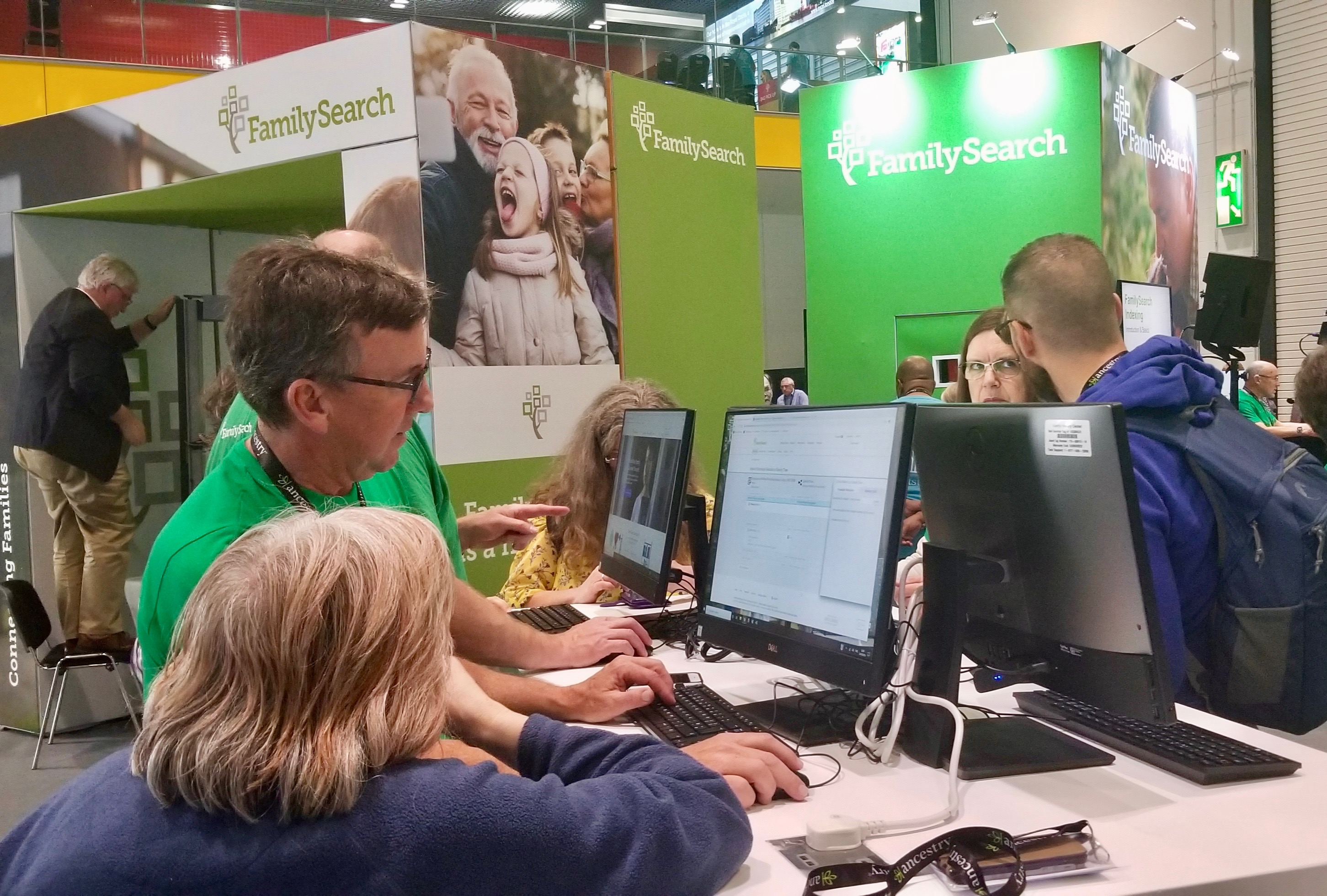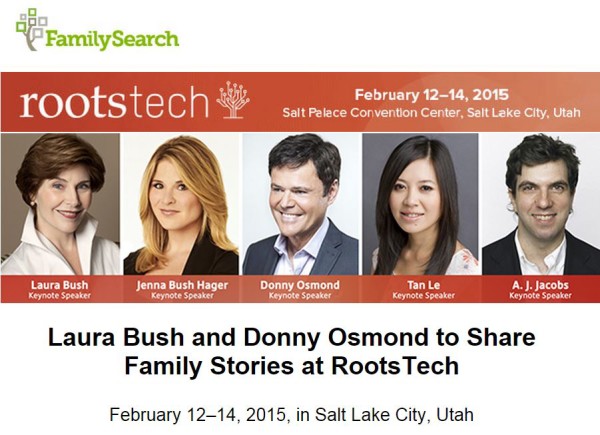
In less than a week, thousands will gather at the Salt Palace in Salt Lake City — and even more will gather online — to participate in RootsTech, Wednesday through Saturday, Feb. 26-29.
This year, the world’s largest genealogy and technology conference is celebrating its 10th event. Those already registered represent 35 countries.
With daily keynote speakers and more than 300 breakout sessions and 180 vendors in the expo hall, FamilySearch CEO Steve Rockwood said the driving force behind the conference is one thing: “the Spirit of Elijah.”
“We want them to have an inspiring experience,” Rockwood said. “The manifestation of the Holy Ghost that they’ll feel will undoubtedly be the Spirit of Elijah, which is the Holy Ghost bearing witness of the divine nature of the family.”
“The reason why we have 300 classes is because we want [attendees] to learn,” he continued. “We want them to learn more how to discover their families, how to gather their families, how to connect their families, and the Holy Ghost will help them.”
He also hopes people connect with each other. “That’s why we bring people together, both in person and online. We hope that they’ll connect to their homelands and others that share those homelands. We hope they’ll connect to their families. … When those two connections take place, then we know they’ll connect to the Spirit.”

Discover your story
Tyler Stahle, RootsTech marketing manager, said the theme of this year’s conference will be different than the previous two years of “Connect. Belong.”
“We’re really good at looking back at our grandparents and ancestors’ stories, but sometimes we miss or we forget the importance of recording and preserving our own story,” he said.
That’s where this year’s theme comes in: “Discover your story. Discover yourself.”
“We just hope we can inspire people to recognize the importance of their own story and that everyone has a story. Every story matters, even if you don’t think it does.”
(Excerpts from the Church News)
History of Rootstech
RootsTech is the successor to three former conferences: the Conference on Computerized Family History and Genealogy, the Family History Technology Workshop and the FamilySearch Developers Conference.
According to Wikipedia, RootsTech is an outgrowth of a conference started at Brigham Young University in Provo, Utah. The manager of Conferences and Workshops, Bob Hales, noted that their long running “Annual Genealogy and Family History Conference” held at the end of July each year was experiencing incredible interest in a track devoted to technology in genealogy. In 1997, Hales met with a local accredited genealogist and technology enthusiast, Alan Mann, to ask for his help in creating a new conference, breaking it off from the Annual Conference. They decided to hold this new conference in March of each year so as to avoid conflict with the July Annual Conference.
The first event was held March 1998 and drew 400 paid attendees. By 1999, the second Computerized Genealogy Conference drew more attendees than BYU’s Annual Genealogy and Family History Conference, coming from 49 states and 3 countries. Several strategies were employed to accommodate more attendees, including offering the same classes in evening sessions, expanding to other buildings (one of which involved transport by vans), and freeing more meeting rooms by moving exhibitors out of meeting rooms into the hallways. By 2001, the conference organizers turned away hundreds of registrations each year. In 2003, the only national competing event, GenTech, was cancelled, leading to further demand for the BYU Annual Computerized Genealogy Conference.
Over the years, other events were organized to be held a day or two before this annual conference to take advantage of the attendance of exhibitors and developers from around the world. This included the Family History Technology Workshop which displayed and discussed developments in technology for genealogists and the FamilySearch Developers Conference.

In 2008, the Church of Jesus Christ’s Family History Department became co-sponsor of these events and the search began for a new venue. The 2010 National Genealogical Society Conference was scheduled to be held in Salt Lake City. With cooperation from the local Salt Lake City NGS sponsor, the Utah Genealogical Association, the Family History Technology Workshop, and the FamilySearch Developers Conference, the Computerized Genealogy Conference organizers met with NGS and proposed a combined NGS conference and Computerized Genealogy Conference, which was held in April 2010. The event was highly successful, and led to plans to move the Computerized Genealogy Conference to Salt Lake City for future events. The name of the conference was changed to RootsTech.
The first RootsTech conference was held in Salt Lake City in February 2011, drawing around 3,000 people. It was held again in 2012, drawing 4,500 people. In 2013 it drew 6,700 registered attendees with over 13,600 remote attendees and many attendees and vendors coming from other countries around the world.
RootsTech had become the largest genealogy and family history conference held in North America. The 2014 event was held at the Salt Lake City Salt Palace where nearly 13,000 attended in person with over 100,000 remote participants. At the 2015 RootsTech conference Laura Bush and her daughter were keynote speakers. Over 25,000 people were reported to have attended the 2016 RootsTech from 50 US states and 30 countries.
In October 2019, RootsTech held a RootsTech conference in London, UK with almost 10,000 people attending.
